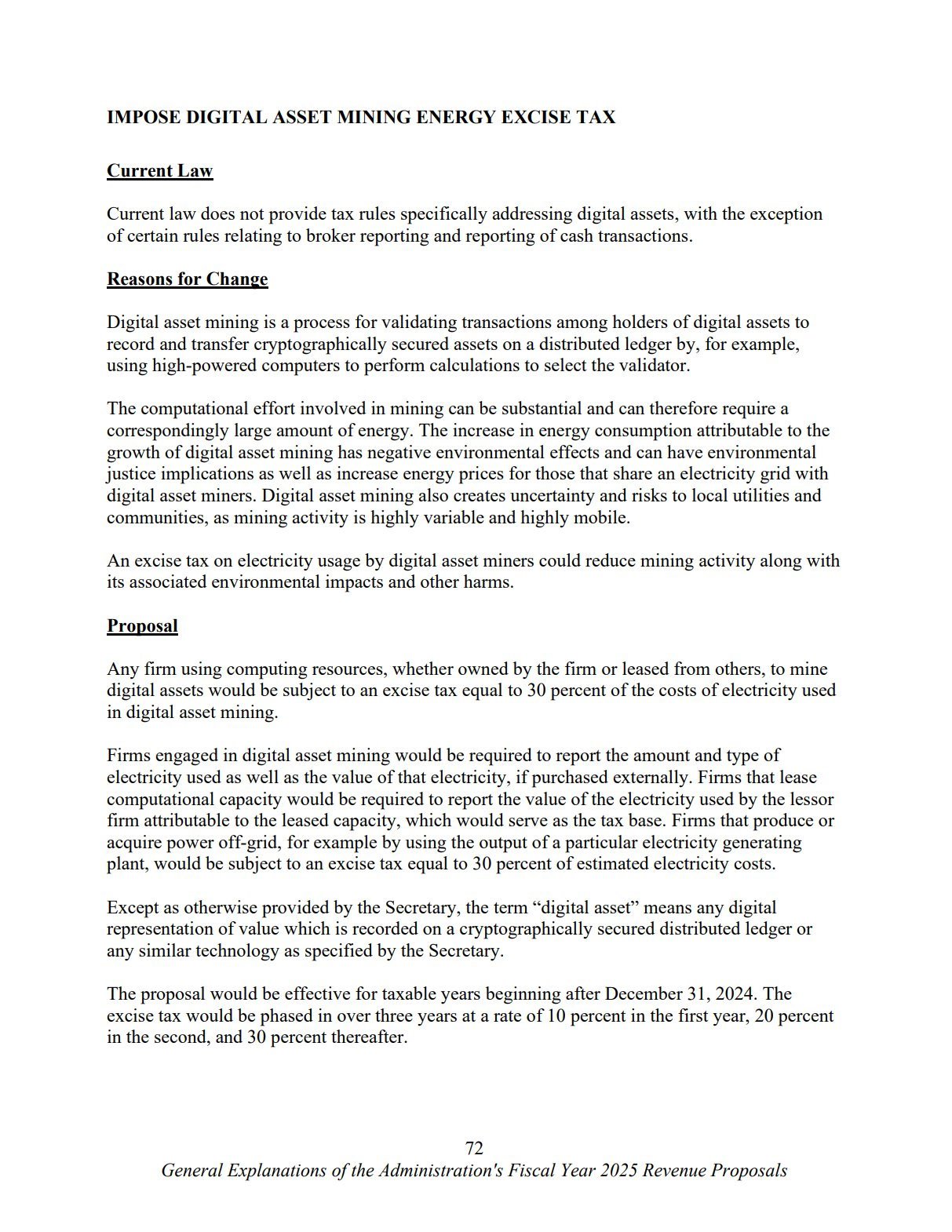As part of his 2025 budget proposal, President Joe Biden’s administration unveiled a series of tax measures aimed at the digital asset industry, a move that could potentially reshape the bitcoin landscape in the United States.
The proposed Bitcoin mining tax, if implemented, is anticipated to generate nearly $10 billion in revenue for the upcoming year and over $42 billion within the next decade.
30% Bitcoin Mining Tax
One of the most notable proposals is the introduction of an excise tax on Bitcoin mining activities. Under this proposal, any firm engaged in digital asset mining operations using computing resources would be subjected to an excise tax equivalent to 30% of the costs associated with the electricity utilized.

The tax is slated to be implemented in phases, starting at 10% in the first year, escalating to 20% in the second year, and ultimately reaching 30% in the third year, starting from January 1, 2025.
Closure of Tax Loopholes
President Biden’s budget proposal emphasizes the closure of tax loopholes that predominantly favor wealthy individuals and large corporations, stating:
“The Budget saves billions of dollars by closing other tax loopholes that overwhelmingly benefit the rich and the largest, most profitable corporations, including closing a loophole that benefits wealthy crypto investors.”
Should these measures be enacted, miners would be required to meticulously report details regarding their electricity usage, including the amount and source of electricity utilized. Additionally, miners leasing computing power, commonly observed in mining pools, would need to report the value of the electricity provided by the lessor, serving as the basis for taxation.
Notably, the Biden administration has already tried to extract such details from miners through an “emergency survey” earlier this year. However, they eventually had to give up due to legal backlash.
It is also important to note that this isn’t the first instance of the Biden administration seeking to regulate mining operations, as a similar tax proposal was pitched last March in the 2024 budget proposal.
Industry Leaders Criticize
However, the proposed tax measures have been met with criticism from various quarters. Republican Senator Cynthia Lummis expressed opposition to the tax proposal, warning of its potential detrimental impact on the digital asset industry in the United States. She stated:
“The White House 2025 budget is incredibly bullish on crypto assets, some might even say they believe it’s going to the moon. But a proposed 30% punitive tax on digital asset mining would destroy any foothold the industry has in America.”
Conversely, some industry insiders, such as Dave Rodman, a renowned digital asset lawyer and founder of The Rodman Law Group, voiced frustration at the proposed measures. While talking to Fortune, he emphasized the government’s acknowledgment of the economic potential of web3 technologies while lamenting its focus on suppressing it.
Moreover, Pierre Rochard, Vice President of Research at bitcoin mining firm Riot Platform, views the tax proposal as a deliberate attempt to stifle Bitcoin and promote the adoption of Central Bank Digital Currencies (CBDCs).
Beyond the mining tax, President Biden’s budget proposal includes additional provisions affecting the digital asset industry, such as imposing reporting requirements on financial institutions and digital asset brokers and introducing new rules for reporting foreign digital asset accounts. These measures collectively reflect the government’s evolving stance on regulating the burgeoning sector.










